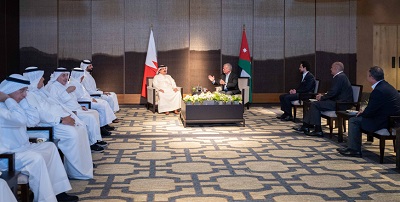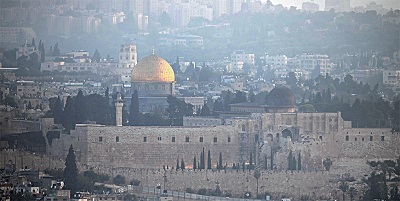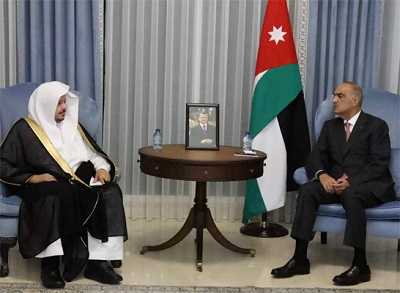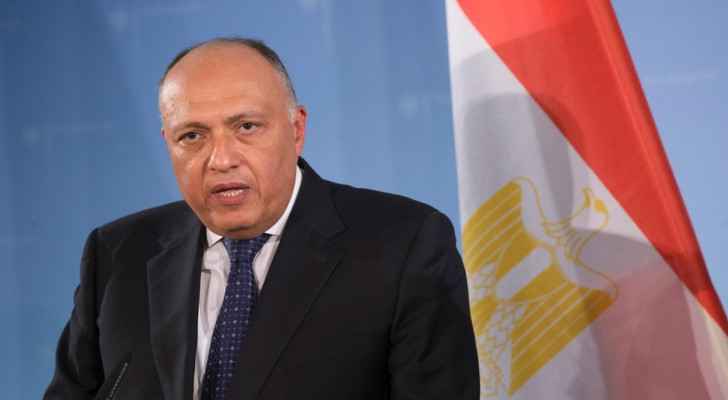Lebanon will benefit from fixing its maritime border with Israel - By Rami Rayess, Alarabiya
Lebanon’s contested maritime border with Israel is one of the most important of its seemingly endless problems. Solving the issue would benefit both parties and provide a potentially essential source of income.
On Thursday Lebanon’s Parliament Speaker Nabih Berri announced that an agreement has been reached on a framework of negotiations under the United Nations to finally demarcate the maritime border with Israel.
Lebanon and Israel contest an estimated 856 square kilometers of the eastern Mediterranean that is thought to hold enormous reserves of both oil and gas.
Both countries have made moves to begin developing these resources in the disputed area. Israel announced its will to commence navigation in block 72, which is adjacent to Lebanon’s block 9 that falls in the Lebanese territorial waters. Official Lebanese data estimated Lebanon’s marine reserves to reach 96 trillion cubic feet of natural gas and 865 million barrels of oil. Lebanon is in dire need for these resources, which offer some hope of reverting its current catastrophic economic and financial situation.
Although Washington lacks a coherent “Lebanon policy,” as outlined by former US undersecretary Jeffrey Feltman in a recent online webinar, the US nevertheless seems highly interested in solving this issue. Washington generally restricts its efforts to following sanctions on Hezbollah officials or affiliates and barely coordinates with the French who are pushing to broker a political deal that would help Lebanon confront its unprecedented social and economic crises.
This makes Washington’s commitment to leading tripartite negotiations to complete the maritime demarcation significant. The Trump administration’s objectives may be different from other stakeholders, in the sense that it wants to add a new Middle Eastern foreign policy accomplishment to its record. It is true that any such deal on border demarcation stands short in comparison to the other normalization deals taking place between Gulf countries and Israel, but it might add to US President Donald Trump’s achievements on the verge of presidential elections scheduled for November 3.
Lebanon and Israel are only bound in a truce agreement that was signed in 1949 after the first Arab-Israeli war and the proclamation of Israel in 1948. The two countries are therefore still in a state of war. Any peace treaty between Lebanon and Israel is not at the negotiating desk now. The former has suffered for years from Israeli occupation that lasted from 1978 until 200 and was liberated without a peace treaty.
Yet demarcating maritime borders would be of benefit for both parties to proclaim natural resources from the deep sea. Fortunately, talks on the issue are taking place on a separate and independent path from any talk of a peace treaty. US Undersecretary David Schenker announced on September 10 that Lebanon and Israel “are getting closer” towards a framework deal on maritime borders. Lebanon currently lacks a cabinet after it resigned in August following the deadly Beirut port explosion. Government formation talks have stalled, with Prime Minister-designate Mustafa Adib withdrawing his candidacy. The absence of an active government hinders the progress of the maritime demarcation process as well as all the other accumulated problems that Lebanon currently suffers from.
Progress on demarcating the maritime border with Israel might also give momentum to solving Lebanon’s other border issues.
Lebanon’s borders with Syria are not demarcated as well. The Syrian regime has refused to cooperate on this matter for decades. The borders of the two countries are intertwined and barely controlled by the official apparatuses from the Lebanese side. Smuggling of goods and fuel are complicating the economic situation in Lebanon further. The consequent cabinets have failed to impose their control on those borders and the problems persists.
Another border issue that still hangs between Lebanon, Syria and Israel is the Shebaa farms, which is currently under Israeli occupation and its identity is disputed between Lebanon and Syria. The latter has refused continued unofficial Lebanese calls to provide the United Nations with the necessary documentation that prove its Lebanese property. The Shebaa farms issue has sparked political tension within the local Lebanese context as well since some parties consider it a pretext for Hezbollah to maintain its weaponry.
Whether Syria or Israel, borders or otherwise, Lebanon has paid the price of being the neighbor of two entities that do not recognize its sovereignty or independence, each for their own interests and aims. The Lebanese suffering continues.
Latest News
 King, Bahrain monarch stress need to maintain Arab coordination
King, Bahrain monarch stress need to maintain Arab coordination Security Council to vote Thursday on Palestinian state UN membership
Security Council to vote Thursday on Palestinian state UN membership Dubai reels from floods chaos after record rains
Dubai reels from floods chaos after record rains Khasawneh, Saudi Shura Council speaker discuss bilateral ties, regional developments
Khasawneh, Saudi Shura Council speaker discuss bilateral ties, regional developments Egyptian Foreign Minister condemns potential Palestinian displacement as 'war crime'
Egyptian Foreign Minister condemns potential Palestinian displacement as 'war crime'
Most Read Articles
- Senate president, British ambassador discuss strategic partnership, regional stability
- Jordan urges UN to recognise Palestine as state
- JAF carries out seven more airdrops of aid into Gaza
- Temperatures to near 40 degree mark next week in Jordan
- Safadi, Iranian counterpart discuss war on Gaza, regional escalation
- UN chief warns Mideast on brink of ‘full-scale regional conflict’
- US vetoes Security Council resolution on full Palestinian UN membership
- Google fires 28 employees for protesting $1.2 billion cloud deal with “Israeli” army
- Biden urges Congress to pass 'pivotal' Ukraine, Israel war aid
- Israeli Occupation strike inside Iran responds to Tehran's provocation, reports say